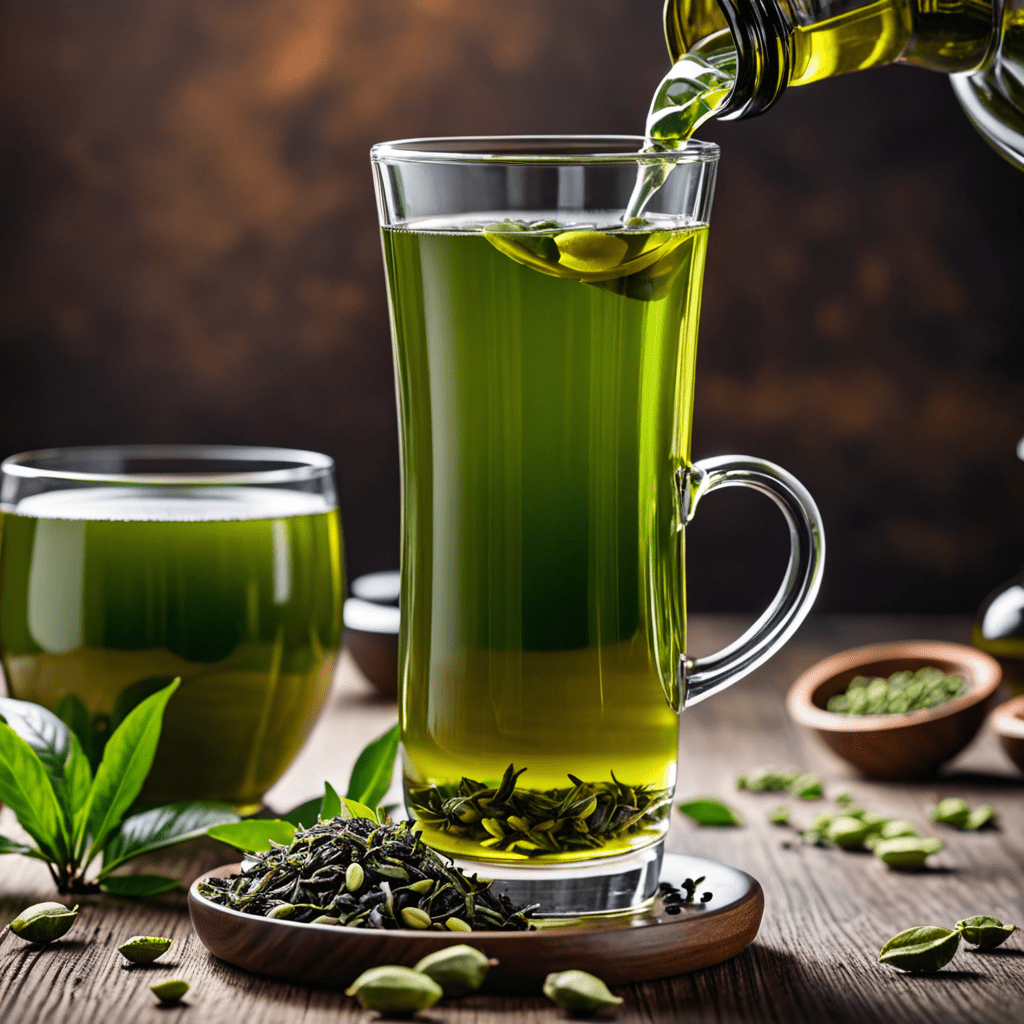
Unlocking the Potassium Power of Green Tea: A Nutrient Breakdown
Green tea has long been celebrated for its numerous health benefits, ranging from improving heart health to promoting weight loss. While most of us are aware of its antioxidant properties, one often overlooked nutrient found in green tea is potassium. In this article, we will dive into the amount of potassium present in green tea and explore its potential health benefits.
The Potassium Content in Green Tea
Green tea contains varying amounts of potassium, depending on factors such as the quality of the tea leaves and the brewing method. On average, an 8-ounce cup of brewed green tea contains around 40-60 milligrams (mg) of potassium. This may seem relatively low compared to other potassium-rich foods, but it still contributes to your daily potassium intake.
The Role of Potassium in the Body
Potassium is an essential mineral that plays a vital role in maintaining proper body function. It helps regulate fluid balance, nerve function, muscle contractions, and blood pressure. Consuming an adequate amount of potassium is important for overall health and can help reduce the risk of certain diseases.
Health Benefits of Potassium
- Heart Health: Adequate potassium intake supports heart health by helping to regulate blood pressure. Research suggests that higher potassium consumption may lower the risk of stroke and heart disease.
Bone Health: Green tea’s potassium content may contribute to bone health. Studies have shown that a diet rich in potassium can help reduce the risk of osteoporosis and promote stronger bones.
Muscle Function: Potassium is essential for proper muscle function, including the contraction and relaxation of muscles. Consuming green tea, along with other potassium-rich foods, can help maintain optimal muscle health.
Kidney Health: Potassium plays a role in preventing kidney stones and maintaining kidney health. It helps in reducing the formation of calcium oxalate, a common type of kidney stone.
Fluid Balance: Potassium is involved in maintaining proper fluid balance within the body. It works in conjunction with sodium to regulate hydration and electrolyte levels.
Including Green Tea in Your Diet
To maximize the potassium content in your green tea, consider a few tips:
- Choose high-quality tea leaves: Opt for loose-leaf green tea or premium tea bags to ensure the highest quality and nutrient content.
Brew it properly: To extract the most potassium, steep your green tea for the appropriate length of time and at the recommended temperature. This may vary depending on the type of green tea you are using, so follow the instructions provided.
Consume it regularly: To reap the potential health benefits of potassium in green tea, incorporate it into your daily routine. Enjoy a cup or two of green tea throughout the day for a consistent intake of potassium.
FAQ: Frequently Asked Questions
Q: Can green tea replace other potassium-rich foods in my diet?
A: While green tea does contribute to your potassium intake, it should not be relied upon as the sole source of this essential mineral. It is important to maintain a well-balanced diet that includes a variety of potassium-rich foods, such as bananas, spinach, avocados, and potatoes.
Q: Are there any potential risks or side effects of consuming too much potassium from green tea?
A: Green tea is generally safe for most individuals when consumed in moderation. However, people with certain medical conditions, such as kidney disease or heart disease, may need to limit their potassium intake. It is advisable to consult with a healthcare professional if you have any concerns about your potassium consumption.
Q: Does the brewing time affect the potassium content of green tea?
A: While brewing time can affect the taste and strength of green tea, it is unlikely to significantly alter the potassium content. The potassium content primarily depends on the quality of the tea leaves and the brewing method rather than the length of brewing time.
In conclusion, while green tea may not be the highest source of potassium, it still contributes to your daily intake and provides various health benefits. By incorporating green tea into your diet alongside other potassium-rich foods, you can support heart health, promote strong bones, and maintain proper muscle function. So, pour yourself a cup of green tea and unlock the potassium power within!

